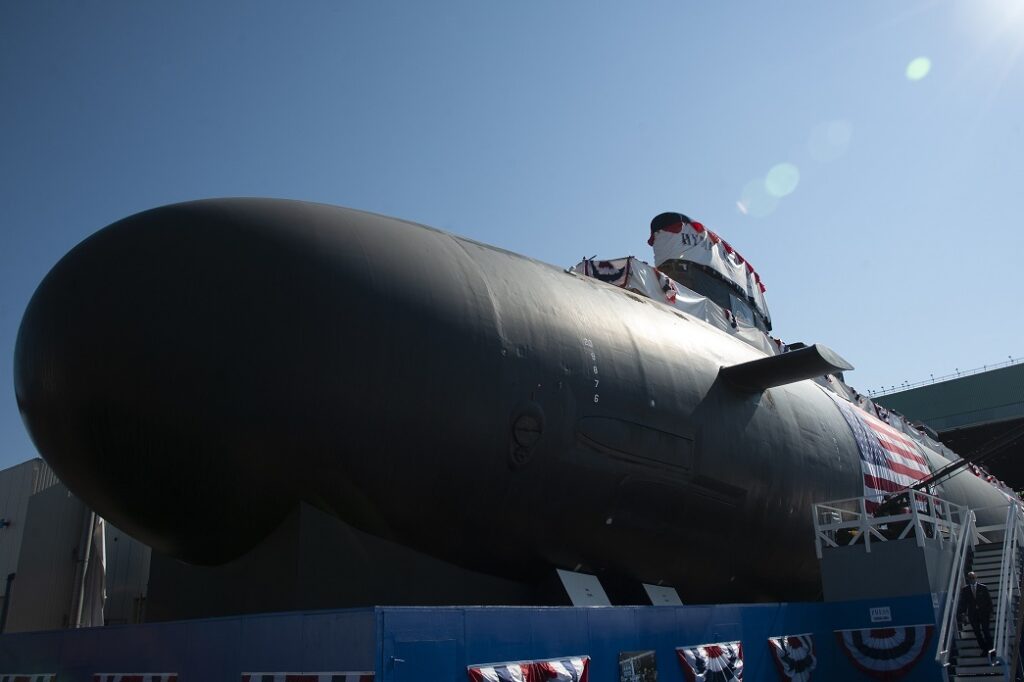According to court documents, a US Navy nuclear engineer and his wife were charged with repeatedly attempting to pass secrets about US nuclear submarines to a foreign government in an alleged espionage scheme found by the FBI.
The investigation began when the FBI obtained a package that had been sent to another country with operational manuals, technical details, and an offer to establish a covert relationship. The package was intercepted in the other country’s mail system and sent to an FBI legal attaché. The package was containing U.S. Navy documents, a letter, and instructions for how to conduct encrypted communications with the person offering the information. The letter in the package said: “Please forward this letter to your military intelligence agency. I believe this information will be of great value to your nation. This is not a hoax.”
The FBI followed the package’s instructions and started an encrypted communication with the sender, who offered Navy secrets in exchange for $100,000 in cryptocurrency. The FBI persuaded the sender to leave information at a dead drop in exchange for cryptocurrency payments through a series of transactions. The FBI arrested Jonathan and Diana Toebbe on October 9, after he placed yet another SD card at a pre-arranged “dead drop” at the second location in West Virginia.
The secret material in question includes plans for submarines that could be beneficial to a variety of countries. Because the reactors are fueled by highly enriched uranium, which can also be converted to bomb fuel for nuclear weapons, nuclear propulsion is one of the most tightly guarded secrets in the US Navy.
The details of the incident according to US Department of Justice as follows:
Jonathan and Diana Toebbe were arrested in Jefferson County, West Virginia by the Federal Bureau of Investigation (FBI) and the Naval Criminal Investigative Service (NCIS) on Saturday, October 9, 2021. They will have their initial appearances on Tuesday, October 12, 2021, in federal court in Martinsburg, West Virginia. For almost a year, Jonathan Toebbe, 42, aided by his wife, Diana, 45, sold information known as Restricted Data concerning the design of nuclear-powered warships to a person they believed was a representative of a foreign power. In actuality, that person was an undercover FBI agent. The Toebbes have been charged in a criminal complaint alleging violations of the Atomic Energy Act.
“The complaint charges a plot to transmit information relating to the design of our nuclear submarines to a foreign nation,” said Attorney General Merrick B. Garland. “The work of the FBI, Department of Justice prosecutors, the Naval Criminal Investigative Service, and the Department of Energy was critical in thwarting the plot charged in the complaint and taking this first step in bringing the perpetrators to justice.”
Jonathan Toebbe is an employee of the Department of the Navy who served as a nuclear engineer and was assigned to the Naval Nuclear Propulsion Program, also known as Naval Reactors. He held an active national security clearance through the U.S. Department of Defense, giving him access to Restricted Data. Toebbe worked with and had access to information concerning naval nuclear propulsion including information related to military sensitive design elements, operating parameters, and performance characteristics of the reactors for nuclear-powered warships.
The complaint affidavit alleges that on April 1, 2020, Jonathan Toebbe sent a package to a foreign government, listing a return address in Pittsburgh, Pennsylvania, containing a sample of Restricted Data and instructions for establishing a covert relationship to purchase additional Restricted Data. The affidavit also alleges that, thereafter, Toebbe began corresponding via encrypted email with an individual whom he believed to be a representative of the foreign government. The individual was really an undercover FBI agent. Jonathan Toebbe continued this correspondence for several months, which led to an agreement to sell Restricted Data in exchange for thousands of dollars in cryptocurrency.

On June 8, 2021, the undercover agent sent $10,000 in cryptocurrency to Jonathan Toebbe as “good faith” payment. Shortly afterwards, on June 26, 2021, Jonathan and Diana Toebbe traveled to a location in West Virginia. There, with Diana Toebbe acting as a lookout, Jonathan Toebbe placed an SD card concealed within half a peanut butter sandwich at a pre-arranged “dead drop” location. After retrieving the SD card, the undercover agent sent Jonathan Toebbe a $20,000 cryptocurrency payment. In return, Jonathan Toebbe emailed the undercover agent a decryption key for the SD Card. A review of the SD card revealed that it contained Restricted Data related to submarine nuclear reactors. On August 28, 2021, Jonathan Toebbe made another “dead drop” of an SD card in eastern Virginia, this time concealing the card in a chewing gum package. After making a payment to Toebbe of $70,000 in cryptocurrency, the FBI received a decryption key for the card. It, too, contained Restricted Data related to submarine nuclear reactors. The FBI arrested Jonathan and Diana Toebbe on October 9, after he placed yet another SD card at a pre-arranged “dead drop” at a second location in West Virginia.
Check out Naval Library App to find out more about the specifications of the US Navy submarines.

















Comments